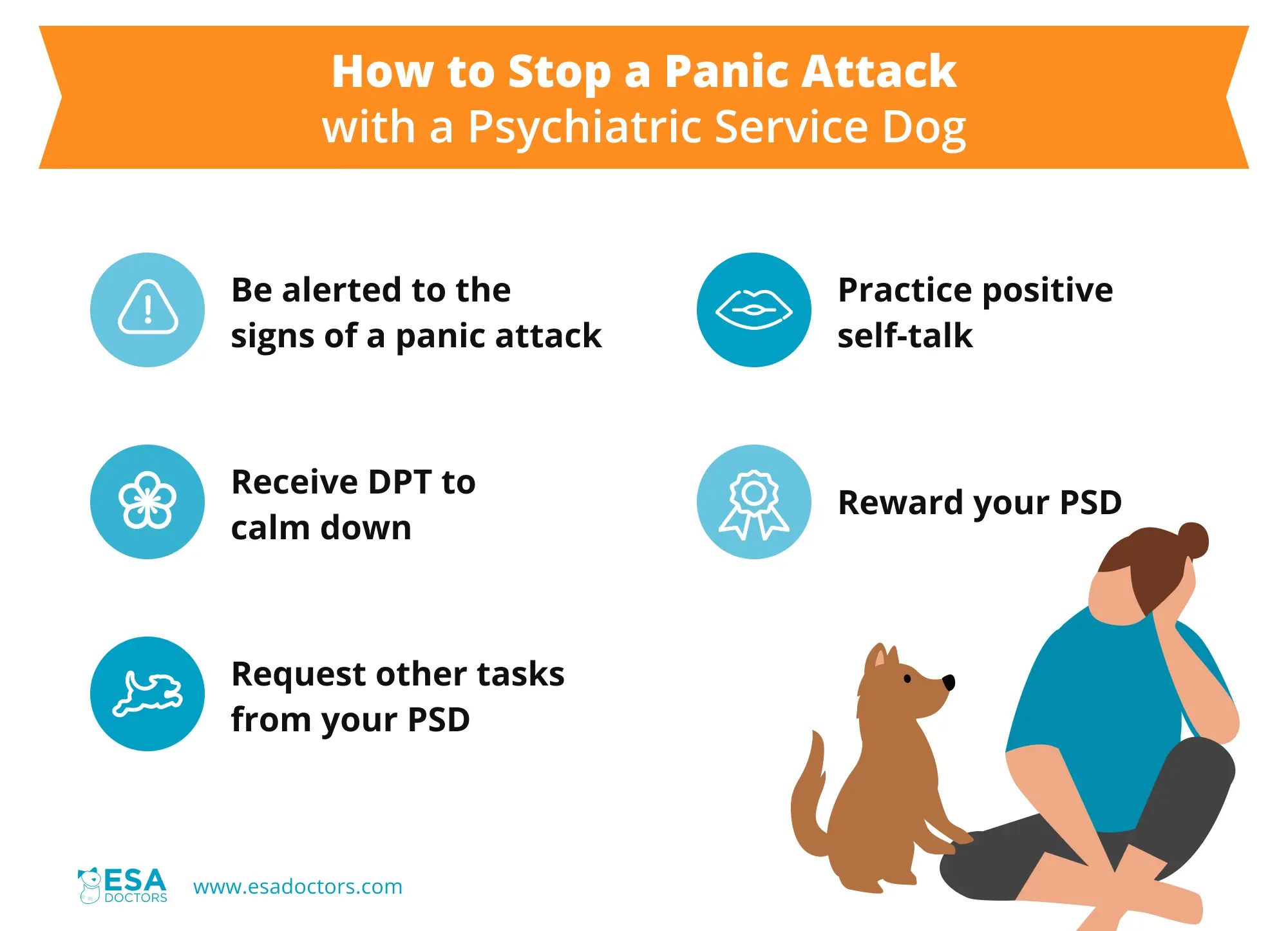Psychiatric Service Dogs (PSDs) can provide assistance to people with mental health conditions, including those who experience panic attacks. One of the most common tasks PSDs are trained to perform is called Deep Pressure Therapy (DPT). DPT involves applying pressure to specific points on the body, which can be soothing and grounding and help prevent or stop a panic attack.
Here are some tips on how to use a Psychiatric Service Dog to stop a panic attack:
- Be alerted to the signs of a panic attack. Rapid heartbeat, sweating, shaking or trembling, difficulty breathing, feeling lightheaded or dizzy, nausea, fear of losing control or going crazy, and fear of dying.
- Receive DPT to calm down. Sit or lie down and position your PSD on top of you so they can apply pressure to your chest or abdomen. Take deep, slow breaths and focus on the pressure and warmth from your PSD.
- Request other tasks from your PSD. PSDs can also be trained to perform other tasks, like providing a calming distraction, retrieving medication, guiding breathing, or alerting others for help.
- Practice positive self-talk. Remind yourself that you’re safe, the panic attack will pass, and you have the tools to manage it. Repeat calming affirmations.
- Reward your PSD. After the panic attack, reward your PSD with praise, pets, treats, or a fun activity.

PSDs can be valuable tools for managing panic attacks, and DPT is one of the most effective ways to use them. If you or someone you know experiences panic attacks, consider working with a licensed mental health professional to explore the benefits of a PSD.
If you are interested in a Psychiatric Service Dog Letter, we are happy to connect you with a licensed healthcare provider so they may assist you.
Do you qualify for a PSD?
Panic attacks can occur as a symptom of chronic mental illness, such as anxiety disorders and post-traumatic stress disorder (PTSD). To qualify for a psychiatric service dog, you must have an eligible mental health disability.
That means your condition is so difficult that it limits your ability to take part in major life activities. Unsure about whether you meet that standard? It’s best to consult with a licensed mental health professional, such as your therapist or doctor. If they believe you have an eligible disability, you can ask them for a PSD letter.
Want to know if you qualify for a psychiatric service dog for depression? Get an assessment by a licensed healthcare professional to see if a PSD could work for you.








Leave a Comment